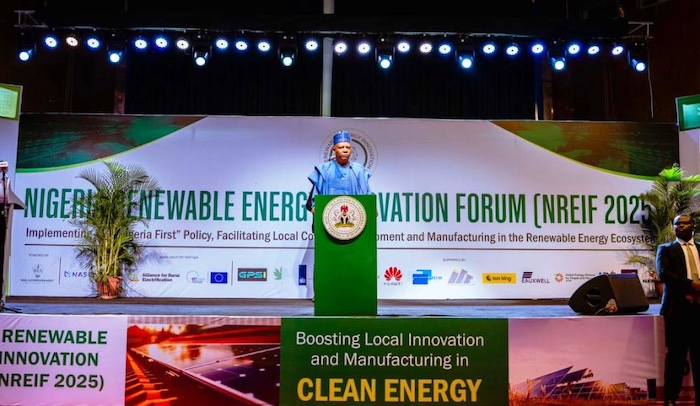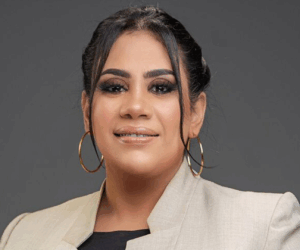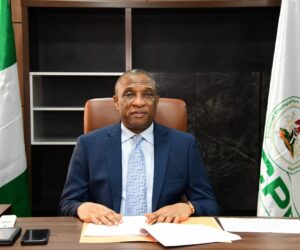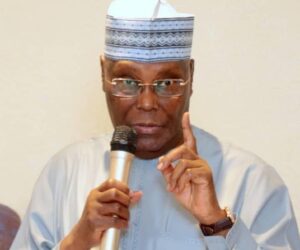Vice President Kashim Shettima on Tuesday disclosed that over $23 billion will be needed to expand Nigeria’s energy access and connect the millions of Nigerians who still live in energy poverty.
Shettima, who stated this in Abuja while declaring open the inaugural Nigerian Renewable Energy Innovation Forum (NREIF) 2025, submitted that as the world sails fast towards net zero, Nigeria and Africa must not be left behind.
Nigeria’s energy transition journey under the administration of President Bola Tinubu plans to unlock an investment opportunity of over $410 billion between now and 2060 to position the nation as the heartbeat of Africa’s renewable energy revolution.
“Nigeria’s energy transition is targeting an investment opportunity of over $410 billion between now and 2060, with over $23 billion needed to expand energy access and connect the millions of Nigerians who still live in energy poverty.
“But beyond access lies our grander ambition, which is to deliver a power system capable of 277 gigawatts of total installed capacity by 2060. This ambition demands more than investment; it demands innovation, local capacity, and commitment,” he said.
Shettima assured investors, development partners and other stakeholders at the forum of President Bola Tinubu’s commitment to consolidating policy foundations that would lead to a renewable energy market that is self-sustaining.
“We are enhancing incentives for local manufacturing, streamlining regulatory frameworks, and deepening collaboration with state governments, investors, and development partners to de-risk private capital and accelerate the emergence of a self-sustaining renewable energy market,” the vice president explained.
The ‘Nigeria First’ industrial strategy, he pointed out, demands that the future of Africa’s renewable energy supply chains be anchored indigenously, just as he said, stressing that from solar panel assembly lines in Lagos to battery recycling hubs along industrial corridors, Nigeria must not only participate in this revolution but lead it.
He, however, noted that efforts to prioritise energy transition cannot succeed without the private sector, even as he called on development partners and Original Equipment Manufacturers (OEMs) to localise technologies, strengthen value chains, and invest in skills and knowledge transfer.
“We count on our state governments to champion renewable industrial clusters and serve as engines of green growth across the federation,” he added.
The Vice President urged participants to reach agreements, forge partnerships and consolidate a national roadmap that would unfold the over $400 million investment in Nigeria’s renewable energy manufacturing value chain into a reality.
“I am pleased to announce that through the engagements facilitated under this forum, more than $400 million in new investment commitments are being mobilised into Nigeria’s renewable energy manufacturing value chain.
“These include solar panels, smart meters, battery storage, and recycling facilities. These investments are projected to create over 1,500 direct jobs across multiple States and reflect growing global confidence in Nigeria’s clean energy industrialisation drive,” he stressed.
Earlier, the Minister of Power, Chief Adebayo Adelabu, said the Nigerian Renewable Energy Innovation Forum (NREIF) marked a new chapter in Nigeria’s energy transformation pathway that highlights the role of innovative partnership in targeting significant amounts of local solar energy production capacity.
Adelabu described the Integrated National Electricity policy as a comprehensive sector-wide policy framework that is aimed at strengthening gains recorded in the sector, including the decentralisation of the value chain.
“We invite you to look beyond the immediate challenges and focus instead on the monumental scale of opportunity before us. With a dynamic and overwhelmingly youthful population of nearly 238 million people, the energy required to fully bridge our infrastructure gap and unleash their productive potential is vast—far exceeding the 5 GW currently available on the national grid,” he stated.
Also speaking, the Managing Director of the Rural Electrification Agency, Abba Aliyu, said the NREIF is a forum that connects policy and vision with research efforts as well as accelerate Nigeria’s aspirations to developing a sustainable green energy ecosystem.
He emphasised the point that Africa cannot be left behind in the global energy transition conversation, noting that the NREIF is Nigeria’s bold and energetic step towards the actualisation of the country’s goals in global energy transition.
“ Our continent holds nearly 60 per cent of the world’s best solar resources, but attracts less than 3 per cent of global renewable energy investment. The challenge before us is clear: we must convert this immense comparative advantage into competitive strength by building industries, nurturing innovation, and driving the kind of local value creation that secures our place in the clean energy economy
“Our population is projected to exceed 250 million by 2030, with rising urbanisation, industrial demand, and digital infrastructure needs from data centres to electric mobility all requiring sustainable and reliable energy.
“The Nigerian government has already set ambitious targets: Achieving net-zero by 2060; delivering 30GW of electricity by 2030, with at least 30 per cent from renewables and through our Energy Transition Plan (ETP) and Energy Compact, committing to mobilise over $10 billion in clean energy investment this decade” he stated.
Speaking in the same vein, the UN Deputy Secretary General, Ms. Amina Muhammed, who was represented by the United Nations Resident/ Humanitarian Coordinator in Nigeria, Mohammed Malick Fall, said the gathering of stakeholders embodied the global ambition in the renewable energy sector, and provides a direction for Nigeria to harness its abundant natural renewable energy capacity and lead the continent as the engine of renewable energy solution.
He pledged the UN’s commitment to collaborate with Nigeria on the journey to build a vibrant local energy sector and foster the aspiration of powering homes, schools and communities.
Also, the Dutch Ambassador to Nigeria, Bengt Van Loosdrecht, said his country remains Nigeria’s reliable partner in the renewable energy sector, noting that the event represents a “milestone” in the partnership between both countries.
At the event, the Governors of Jigawa, Bayelsa and Ogun States, and the management of REA, signed several multi-million Memorandum of Understanding (MoUs) with various private sector development partners, including the Dutch government.
Deji Elumoye, Emmanuel Addeh
Follow us on:








